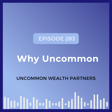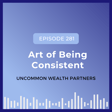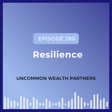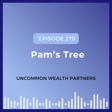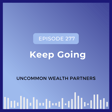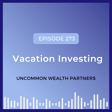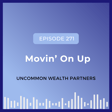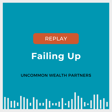
Music Maverick: Interview with Colton Sleister
Colton Sleister is the founder and co-owner of Sleister Music, a company specializing in renting, repairing, and selling musical instruments to support school band programs. Colton began his entrepreneurial journey at the young age of 14. He is a graduate of Drake University with a degree in chemistry and has a deep passion for both music and business. Colton also actively performs with the Central Iowa Wind Ensemble, demonstrating his continued dedication to the musical arts.
Episode Summary:
In this engaging episode of the Uncommon Wealth Podcast, host Phillip Ramsey sits down with Colton Sleister, a young entrepreneur and founder of Sleister Music. Starting his business at only 14 years old, Colton shares his journey from a high school student looking for a better trombone to a successful business owner specializing in musical instruments for school band programs. The episode delves into his early influences, especially his father, a serial entrepreneur who had a significant impact on him. Listeners will gain insights into Colton's entrepreneurial spirit, his approach to scaling Sleister Music, and the lessons he learned along the way.
Throughout the episode, Colton reflects on overcoming common business challenges, from managing a growing team to navigating product market fit. He also talks about the critical role of customer relationships and school partnerships in the success of Sleister Music. Colton emphasizes the importance of creating a low-barrier, month-to-month rental model that makes it easier for children to try out musical instruments. With a clear vision for the future, Colton aims to make Sleister Music the most trusted and valued partner for school band programs in Iowa. Tune in to hear about his successes, setbacks, and the strategies he employs to sustain and grow his business.
Key Takeaways:
- Early Entrepreneurship: Colton started Sleister Music at age 14 by selling used trombones through platforms like Craigslist.
- Family Influence: His father, a serial entrepreneur, played a crucial role in shaping his business acumen and providing initial financial support.
- Product Market Fit: One key to Colton's success was identifying and meeting a specific need within the local school band community.
- Customer-Centric Approach: The month-to-month rental model offers a low-barrier entry for parents and students, demonstrating a thoughtful, customer-focused business strategy.
- Future Goals: Colton aims to make Sleister Music the top partner for school band programs in Iowa, continually improving their services and expanding their reach.
Notable Quotes:
- "Everybody who's joining band for the first time in this part of the country, central Iowa, most of them, they'll start in the month of September." - Colton Sleister
- "I was frugal. I hated spending money because I could make it into more money." - Colton Sleister
- "One reason that was a great fit, me going to Drake University, is that I could, after classes, take the calls, line up appointments to show them instruments." - Colton Sleister
- "We'll be able to make partnerships with more and more schools, more and more parents like yourself in those schools, and word of mouth, us reaching out to them." - Colton Sleister
- "If you're dealing with people, at some point, you're gonna have people issues, probably right away." - Colton Sleister





